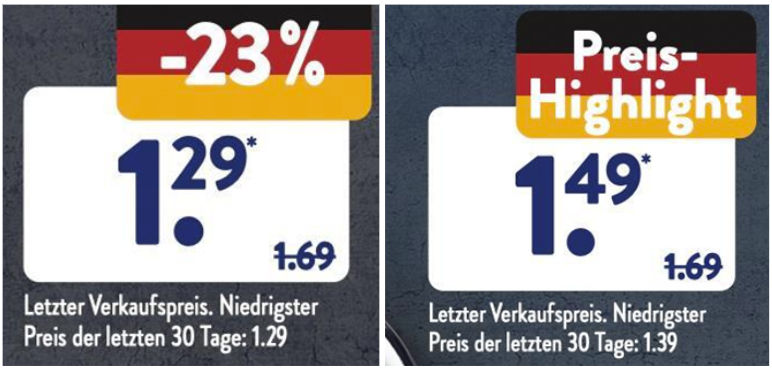Dispute over new rules on price cut disclosures reaches the Court of Justice of the European Union



EU Court of Justice released a decision dealing with a supermarket chain, that inflated the prices of grocery items before offering price reductions and displayed fake discounts.
Earlier this year, we informed you about the new rules regarding the display of discounts on goods, aimed at protecting consumers from price manipulation (more information here). These rules stem from the transposition of Directive (EU) 2019/2161 of the European Parliament and of the Council of 27 November 2019 (the so-called Omnibus Directive), which has been transposed into Slovak law primarily through Act No. 108/2024 Coll. on Consumer Protection, effective as of 1 July 2024.
Under the new rules, traders are required to indicate the prior price of goods in any price reduction notice, where the prior price is defined as the lowest price applied by the trader during a period of time not shorter than 30 days prior to the application of the price reduction. A number of questions and possible interpretations of the statutory disclosure of discounts have arisen in relation to this rule.
The recent judgment of the Court of Justice of the European Union ("CJEU") in Case C-330/23 Aldi Süd has provided additional clarification on the issue. The case involved Aldi, a supermarket chain, which advertised reduced prices and percentage discounts on bananas and pineapples in its advertising brochures. The price of bananas was advertised as EUR 1.29/kg and that of pineapples as EUR 1.49/piece. The advertisement stated that the prior prices were EUR 1.69/kg, giving consumers the impression of a bargain. However, at the bottom of the advertisement, notes indicated that the lowest prices in the last 30 days were EUR 1.29/kg for bananas and EUR 1.39/piece for pineapples.
The price details of the offered goods were displayed in the advertisement as follows:

Although the first label shows a 23% discount on the goods, the actual discount (percentage price reduction), compared to the prior price (the lowest price of the goods in the last 30 days), is 0%.
In the second label, the goods are marked with the slogan "price highlight," which falsely informs consumers of a bargain, while in reality, the goods are sold at a price approximately 7.2% higher than the lowest price in the last 30 days.
The trader calculated the discount (price) in the advertisement based on a price other than the lowest price in the last 30 days, thereby misleading consumers. While the lowest price in the last 30 days was indicated on the label, the discount was not calculated from that price. According to the CJEU, this constitutes a violation of consumer protection against price manipulation.
In its decision, the CJEU confirmed that any price reduction announced by a trader, whether in the form of a percentage reduction or an advertising claim emphasizing the advantageous nature of the price, must be based on the lowest price applied by the trader during a period of time not shorter than 30 days prior to the application of the price reduction. This prevents traders from misleading consumers by raising prices prior to announcing a discount, thereby falsely creating the impression of a genuine reduction.
The CJEU ruling is relevant for all EU Member States, including Slovakia. Traders (including Slovak traders) must familiarize themselves with these rules and ensure that product discounts are advertised accordingly.
For violating the new price reduction rules, a fine of up to 1% of the trader's turnover for the previous accounting period, with a maximum of EUR 100,000 may be imposed. In the case of repeated violations, a fine of up to 2% of the trader's turnover for the previous accounting period, with a maximum of EUR 200,000 may be imposed.
Given that the new rules on price reductions have only been in force for a short time, it is expected that uniform interpretation will develop primarily through the decisions of oversight authorities and courts.
Do you have a question? Write us.
Our experts will answer your questions